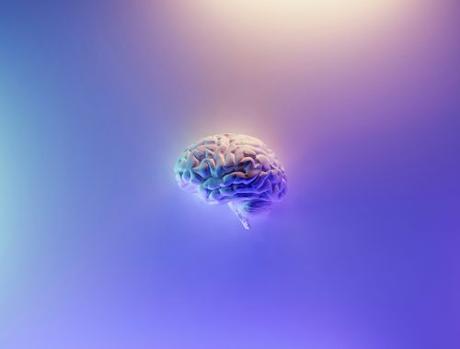
Menopause is a natural biological process that marks the end of a woman’s menstrual cycles, typically occurring in the late 40s to early 50s. While it is a significant milestone, menopause brings a variety of symptoms, including hot flashes, mood swings, and sleep disturbances. One often overlooked aspect is its impact on memory and cognitive function. Understanding the relationship between menopause and memory is crucial for maintaining overall well-being during this transition.
Luckily, there are many excellent services for women experiencing menopause, and medical professionals and support networks provide valuable insights and assistance to those who need it. By exploring how menopause influences memory, we aim to equip women with the knowledge and tools needed to navigate this stage with confidence and mental clarity.
Understanding Menopause and Its Impact on Memory
Menopause is defined as the time when a woman has not had a menstrual period for 12 consecutive months, signaling the end of her reproductive years. This transition occurs slowly, in stages. During perimenopause, hormone levels, particularly estrogen, fluctuate and eventually decline, leading to the cessation of menstruation. These hormonal changes are responsible for many symptoms, with cognitive changes and memory issues being particularly concerning.
Estrogen plays a key role in brain function, including memory, mood regulation, and cognitive abilities. As estrogen levels drop, many women report difficulties with memory, concentration, and mental clarity. Understanding the connection between these hormonal changes and cognitive function is essential for managing symptoms effectively.
Common Memory Issues
Memory problems during menopause can manifest in various ways, including short-term memory loss, difficulty concentrating, and general forgetfulness. Here are some examples:
Short-term memory loss might involve forgetting where you placed items or the names of recent acquaintances.
Difficulty concentrating can lead to decreased productivity and increased stress, making it challenging to complete tasks or follow conversations.
Forgetfulness, such as missing appointments or struggling to recall information, can significantly impact daily life and self-confidence.
These cognitive changes are common during menopause due to hormonal fluctuations, particularly the decline in estrogen, which affects brain function and memory processes.
Scientific Insights on Menopause and Memory
Scientific research has provided valuable insights into the connection between menopause and memory. The decline in estrogen levels during menopause can affect brain regions involved in memory, such as the hippocampus and prefrontal cortex. These areas are important for forming and retrieving memories, as well as for executive functions like planning and decision-making.
Neurological explanations suggest that estrogen helps protect neurons and supports synaptic plasticity, essential for learning and memory. With reduced estrogen, these protective effects diminish, leading to the cognitive symptoms observed during menopause.

Strategies to Keep Your Mind Sharp
Adopting healthy lifestyle choices can significantly impact cognitive health during menopause. A balanced diet rich in brain-boosting foods like leafy greens, berries, nuts, and fatty fish can provide essential nutrients that support brain function. Regular physical exercise, such as aerobic activities, strength training, and yoga, improves blood flow to the brain and promotes the growth of new neurons.
Quality sleep is vital for cognitive health, as it helps consolidate memories and clear out toxins from the brain. Mental exercises, such as puzzles, reading, and learning new skills, stimulate neural pathways and enhance cognitive abilities. Managing stress through mindfulness, meditation, and yoga can reduce the negative impact of stress hormones on the brain. Additionally, staying socially engaged by maintaining connections with friends and family can provide mental stimulation, further promoting cognitive health.
Managing Life Transitions During Menopause
Navigating major life transitions during menopause can add to the stress and cognitive challenges many women experience. For instance, relocating to a new home or downsizing can be overwhelming, compounding the mental load. In such situations, hiring professional movers can significantly reduce stress.
A reputable company with a long history and excellent reviews, Fairfax Transfer and Storage can handle the logistics of moving, ensuring a smooth and efficient transition. This allows you to focus on maintaining your health and well-being. By delegating physically demanding and time-consuming tasks to experienced professionals, you can preserve your mental energy and reduce stress, which is crucial for maintaining cognitive function during menopause.
Medical Interventions and Treatments
Medical interventions and treatments can offer additional support for managing cognitive symptoms during menopause. Hormone Replacement Therapy (HRT) is a common treatment that involves supplementing estrogen to alleviate While HRT can improve cognitive function for some women, it is essential to discuss the potential risks and benefits with a healthcare provider.
Other medications and supplements, such as antidepressants, anti-anxiety medications, and omega-3 fatty acids, may also help alleviate memory issues. Consulting with healthcare professionals who are well-versed in menopause management can provide personalized treatment plans tailored to individual needs. These experts can offer guidance on the most effective and safe interventions, ensuring women receive comprehensive care during this period.

Community Resources
For women navigating the challenges of menopause, community resources can be invaluable for maintaining cognitive sharpness and overall wellness. Many communities offer menopause support groups and workshops where women can share experiences and learn from each other about effective strategies for managing memory issues. Local health centers often provide educational sessions with healthcare professionals about how hormonal changes during menopause can affect memory, along with advice on mitigating these effects. Engaging with these resources offers practical advice and support. It promotes a sense of community among women experiencing similar health transitions, making the journey through menopause a more connected and manageable experience.
Conclusion
The relationship between menopause and memory is a critical aspect of women’s health that warrants attention. While menopause brings changes that can impact cognitive function, understanding them and taking proactive steps can help maintain mental sharpness. Adopting a healthy lifestyle, engaging in mental exercises, and seeking medical interventions when necessary are strategies for preserving cognitive health. By staying informed and utilizing various resources, women can navigate this transitional period with confidence, ensuring their minds remain sharp.

